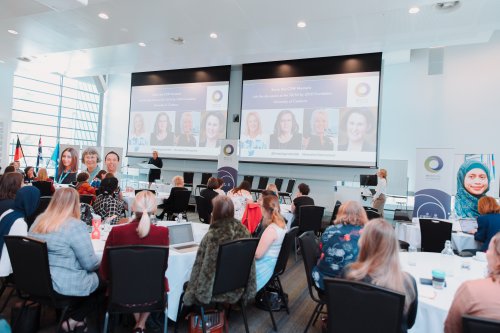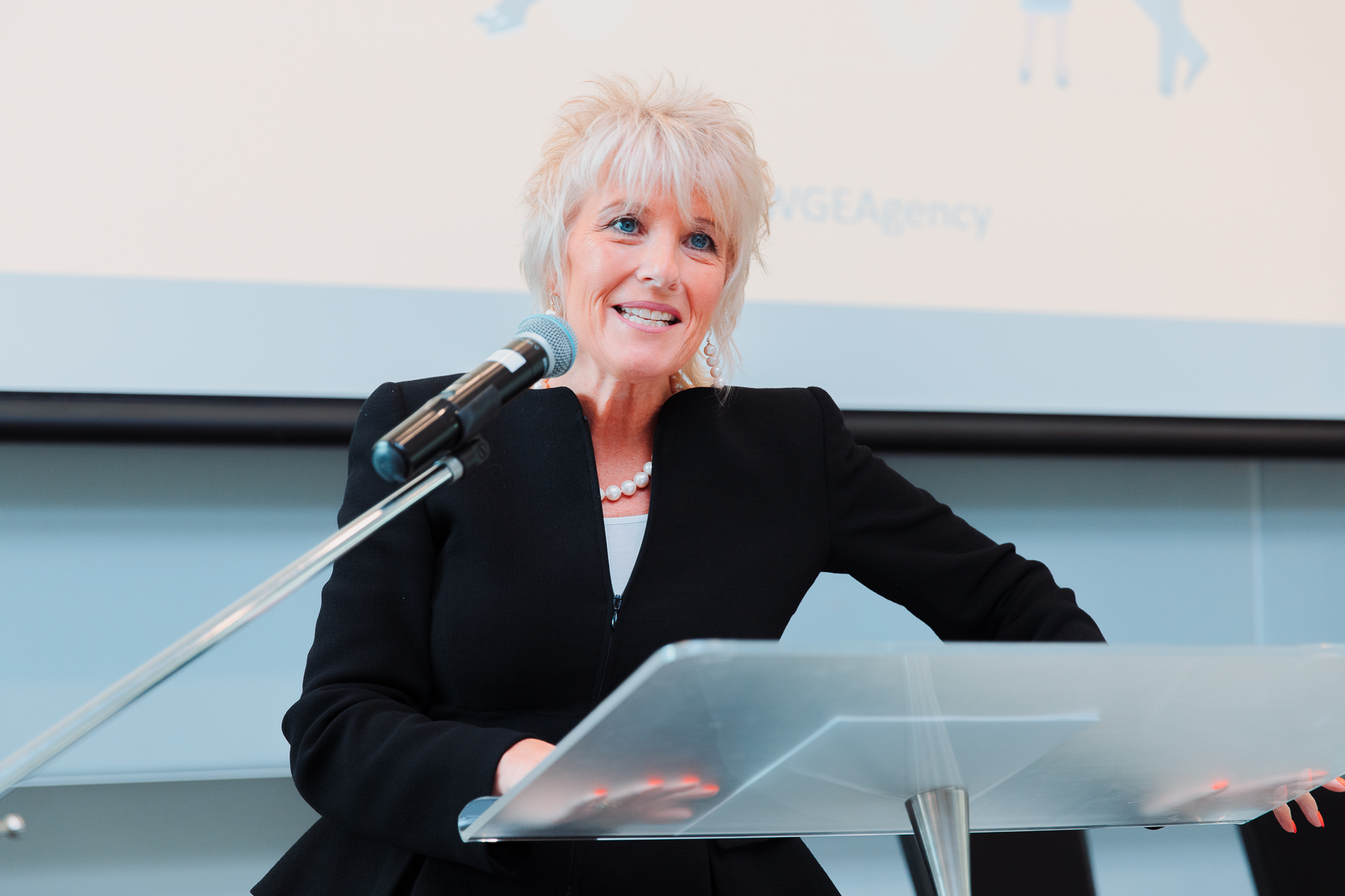
On complacency: I fear there is a sense of complacency around gender equality in our workplaces; with CEOs, with executive teams and with boards. And that tells me that these organisations simply don’t get it. They don’t get that this is an important business proposition. If they have better balanced teams, they are going to have better business outcomes.
On the gender pay gap: There is still a pay gap in favour of men in every industry and every occupation, even in the female-dominated industries. In fact, healthcare and social assistance over the last two years, their gender pay gap’s gone up. And I sometimes think that female-dominated industries think that because they’re female-dominated, they don’t have a problem. Yeah, you’ve got a big problem! Your problem is you have got too many men in management and you’ve got not enough men doing lower-pay, lower-value work.
On domestic violence: One area where we have seen huge increases this last 12 months … is in the number of employers that have put a policy or strategy in place around domestic violence. It went up by 13.3 percentage points in one year. Now we have over 60% of all organisations with a policy or strategy in place to support domestic violence. And nearly a third of our organisations now offer paid leave for those affected by domestic violence.
We’ve got to get rid of these primary and secondary carer labels. This is rubbish. We are all parents.
On paid parental leave: We’ve got to get rid of these primary and secondary carer labels. This is rubbish. We are all parents. We may parent differently. The husband or the male partner may go out with just one bottle and no nappies and goodness knows what else, but they’re still caring. They’re still providing our children with valuable experience. It would be boring if we all did it the same way. And as women we have to stop being as judgmental of the way they do it.
Kate Jenkins, Sex Discrimination Commissioner
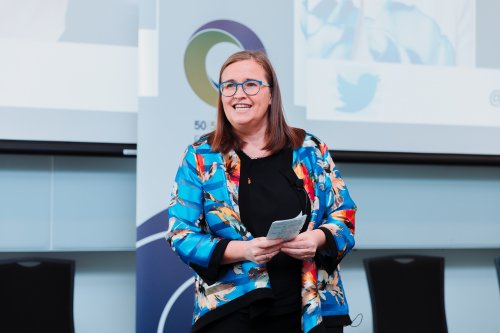
On workplace sexual harassment: This inquiry [into workplace sexual harassment] arose from a confluence of a number of factors and particularly conceived from a scandal. It is timely that [on Thursday] Harvey Weinstein was sentenced to 23 years imprisonment as a result of rape and sexual assault. I can tell you on the 5 October, 2017, when [the story] hit the news and it created this global social media movement, #MeToo movement started a conversation across the globe … At that point I knew … sexual harassment cases were a consistent, persistent part of the Australian workplace.
On lessons learned: [Workplace sexual harassment is] right across this country. Every industry, every location, and every level. There are some people who are more at risk. There are some industries that create more risk and there are some situations that create a higher risk.
I spoke to people who have still not got back into the industry they loved, or performed work at the level that they could have, had there not been harassment.
On consequences: I spoke to people who, five, 10, 15 years later, have still not got back into the industry they loved, or performed work at the level that they could have, had there not been harassment.
On the need for change: We found our current system is no longer fit for purpose. It’s very much driven by complaints … If you’ve got a problem you have to complain about it … It causes a lot of distress and we’re Australia – you’re meant to get along, take a joke, don’t whinge. It’s really counter cultural.
Liz Broderick, Founder of Male Champions for Change MCC
On progress:1995 was the high point in our global progress on women’s rights. Twenty-five years on, there’s been progress in a number of areas, particularly reducing maternal mortality and increasing girls education … and the rise of young women’s activism. We know now though, that in other areas we have regressed and at the heart of its regression is discrimination. We should never lose sight of that. That discrimination lies at the heart of all inequality faced by women regardless of their identity or status.
Liz appeared via Skype
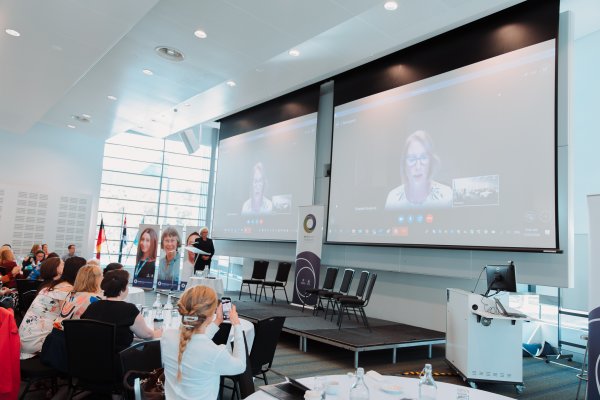
On discrimination: Discrimination operates systematically in all spheres of women’s life and it’s by no means accidental. Discrimination is political and it happens by design. Structural discrimination … reflects an underlying power imbalance intended to suppress women and relegate them to an inferior status.
On change: What I’ve learned is that change doesn’t happen in one giant leap. Rather, it happens when decent men and women across the world hold nations and our institutions accountable. I’ve also learned that progress came about because women I may never know cared enough to stand tall and demand change, in order that future generations of women and girls could live more empowered lives.
Human rights starts at home, that’s the most important thing.
On equality: As a parent, I believe that respect and equality starts at home, which shapes the expectations of our daughters. We shape the attitudes of our sons. Human rights starts at home, that’s the most important thing.
On now: If there’s one silver lining with the coronavirus is seeing the avalanche of organisations moving more and more to enable good flexible work practice. We must never allow one’s pregnancy to jeopardise a place at work.
Liz Broderick is a UN special rapporteur for Discrimination against Women and Girls.
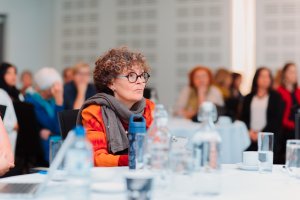

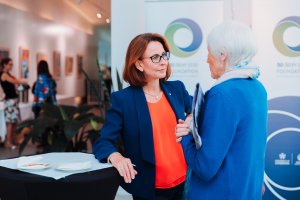 (Photos: Prof Kim Rubenstein, Co-Dir Academic 50/50 by 2030 Foundation; Trish Bergin, Co-Dir Governance 50/50 by 2030 Foundation; Virginia Haussegger, Chair 50/50 Foundation & BroadAgenda Chief Editor)
(Photos: Prof Kim Rubenstein, Co-Dir Academic 50/50 by 2030 Foundation; Trish Bergin, Co-Dir Governance 50/50 by 2030 Foundation; Virginia Haussegger, Chair 50/50 Foundation & BroadAgenda Chief Editor)

